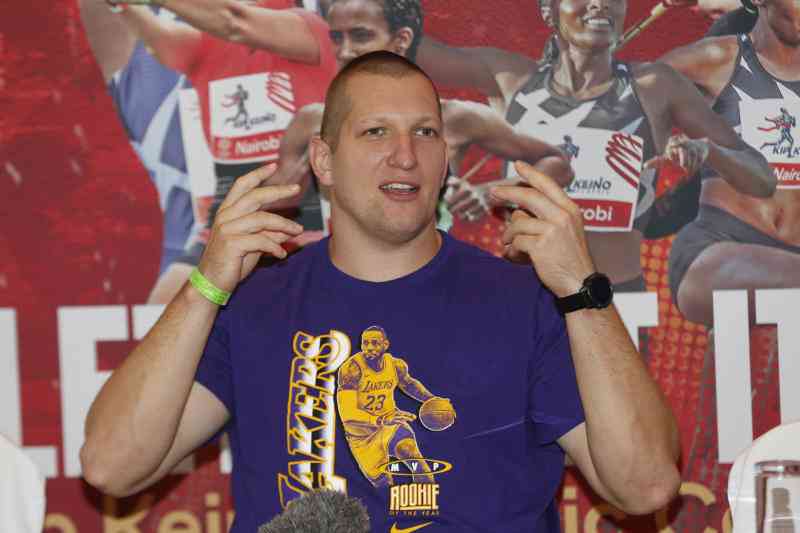By Charles Kanjama
Fredrick Douglass was the foremost Negro leader in 19th century America. He was born a slave in 1817, but managed to escape to the North and obtain freedom in 1838. He dedicated himself to the destruction of slavery, becoming a great orator and spokesman for the Negro.
One of his great speeches, given in 1852 for America’s Independence Day was titled: The meaning of July Fourth for the Negro.
To the White Americans who asked Douglass to celebrate their independence, he responded, “I am not included within the pale of this glorious anniversary!
The blessings in which you this day rejoice are not enjoyed in common. The rich inheritance of justice, liberty, prosperity and independence bequeathed by your fathers is shared by you, not by me... This Fourth of July is yours, not mine. You may rejoice, I must mourn.”
Hints of this tension between the Negro and America emerge in Barack Obama’s relationship with his absent Kenyan father.
In Dreams from my Father, Barack reflects on his father’s influence, idealised and transmitted through his mother and grandpa.
“Now there’s something you can learn from your dad,” his grandfather would tell him, “Confidence. The secret to a man’s success.”
And yet, Barack admitted, “At the point where my own memories begin, my mother had already begun a courtship with [another] man, and I sensed without explanation why the photographs [of my father] had to be stored away.
But once in a while, sitting on the floor with my mother, the smell of dust and mothballs rising from the crumbling album, I would stare at my father’s likeness and listen as the events of his life tumbled into a single narrative.”
After growing up, Obama met his half-sister Auma and listened as the dreams from his father were replaced by a sobering reality: “[The Old Man] would stagger in drunk and come into my room and wake me because he wanted company or something to eat.
He would talk about how unhappy he was and how he had been betrayed... One year the Old Man couldn’t even pay my school fees. I was so ashamed, I cried all night.” Maybe it is fate, maybe it is fortune. Yet Barack Obama, whose Kenyan descent was more dream than reality, is now the foremost mirror that shows Kenya to the world.
Obama, an American citizen by birth, is also under article 14(2) of our Constitution a Kenyan citizen. And yet, though we would like to claim him as ours, to paraphrase Douglass, this Barack Obama is theirs, not ours.
His policies as a Democrat in the area of immigration, healthcare and foreign policy are as favourable to Kenya as we could wish for.
President Obama seamlessly bridges the gap between Africa and the West, between Asian, Black and White, between the rich and poor, and between Christian and Muslim, just by who he is.
Stay informed. Subscribe to our newsletter
And yet, by his strong espousal of liberal moral values on issues like abortion, homosexuality and youth sexuality, he could not be more alienated from us.
On his first trip to Kenya, Obama lost his luggage. After two days of frustrating search, Barack and his sister Auma travelled to the airport where they met a heavy dose of bureaucracy: “‘I am sorry, but I have no record of your bag here.
If you like, you can fill out another form...’ The receptionist had withdrawn behind a stony mask, a place where neither pleading nor bluster could reach.”
Luckily, at that moment, Auma met her uncle who knew the airline office manager. Within minutes, the bag was traced.
Obama learnt a big lesson about Kenya: what holds everything together is relationships: who you know, who knows you. So maybe here we can find the meaning of Obama’s victory for Kenya.
Though imperfectly, he knows us, we know him, we claim him.
He is not just theirs, he is ours. And so we hope, somehow, he will help us find our rightful place in the world.
The author is an Advocate of the High Court
 The Standard Group Plc is a
multi-media organization with investments in media platforms spanning newspaper
print operations, television, radio broadcasting, digital and online services. The
Standard Group is recognized as a leading multi-media house in Kenya with a key
influence in matters of national and international interest.
The Standard Group Plc is a
multi-media organization with investments in media platforms spanning newspaper
print operations, television, radio broadcasting, digital and online services. The
Standard Group is recognized as a leading multi-media house in Kenya with a key
influence in matters of national and international interest.
 The Standard Group Plc is a
multi-media organization with investments in media platforms spanning newspaper
print operations, television, radio broadcasting, digital and online services. The
Standard Group is recognized as a leading multi-media house in Kenya with a key
influence in matters of national and international interest.
The Standard Group Plc is a
multi-media organization with investments in media platforms spanning newspaper
print operations, television, radio broadcasting, digital and online services. The
Standard Group is recognized as a leading multi-media house in Kenya with a key
influence in matters of national and international interest.





